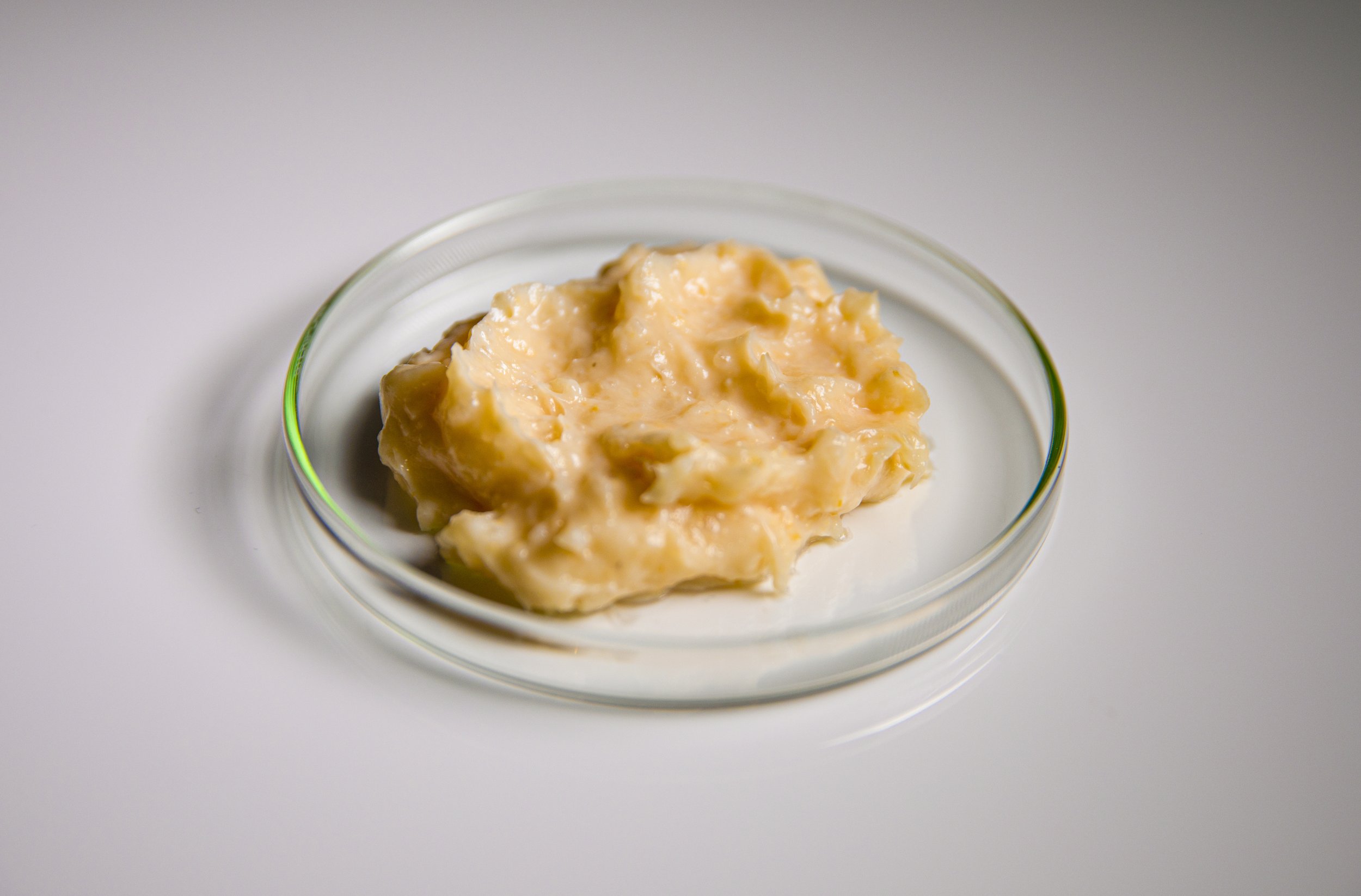Magic happens when disciplines collide, yet bioengineering and gastronomy rarely intersect in academia. Our chef in residence program bridges this divide by bringing the world’s best chefs to our lab and campus to learn, innovate, and collaborate in sustainable foods.
Chefs are creative artists pushing boundaries in food and sustainability, while scientists and engineers develop technologies and uncover fundamental principles to tackle urgent challenges human and planetary health. How do we bring these creatives together to drive both innovation and conversations in sustainable foods? Our residence program asks this question by bringing chefs to campus to learn, innovate, and teach. Typical residences last for approximately 4-6 weeks, spread out across academic quarters. During this time, chefs teach classes on campus, attend lab meetings, shadow scientists, and engage with scholars, stakeholders, and students from diverse disciplines. As CRISPR and cookbooks collide, new perspectives emerge at the interface: the residency lays the foundation for new sustainable food innovations, pushes the boundaries of culinary creativity, and equips trainees with new skills and perspectives to build meaningful careers in sustainable foods.
The first iteration, during the 2025-2026 academic year, is hosted through a partnership between Stanford’s Doerr School of Sustainability Visiting Artist Program and Office of the Vice President for the Arts.
2025-2026 Residence: Mugaritz
In the 2025-2026 academic year, we will host Ramon Perisé Moré, the head of Creativity at 2-Michelin Star restaurant Mugartiz, to celebrate food as art, through the lens of fermented foods. Fermentation is an universal, ancient form of biotechnology that has been practiced for millenia. Ramon will invite the campus to explore the science and art of fermentation to understand the impact on our lives. He will investigate communities across scales - looking at both the microorganisms that transform the food at a biochemical level, as well as the community of humans that drive and are impacted by these processes. How can we harness these microorganisms to drive new experiences in flavor and art? How do these experiences in turn impact the biology of the organisms? What are the parallels in symbiosis between microbial and human ecosystems? How can we harness these communities for human and planetary health? Through workshops, lectures, installations, and research collaborations, Ramon will provide hands-on opportunities for our community members to engage with fermentation at a sensory, emotional level to push the status quo and engage in meaningful conversations around food
Interested in supporting our residency program? Contact us.



